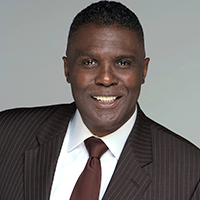By Glenn Ellis
(Trice Edney Wire) – Medical diseases are becoming more complex, research is getting better, and people are living longer. There has never been a time where patients need to trust their doctors more.

The general public’s trust in the U.S. medical profession has continuously dropped, sharply, over the last 50 years. In 1966, 73% of Americans said they had great confidence in the leaders of the medical profession. In 2012, only 34% of Americans felt this way.
In no segment of the United States population is this more present than in the African American community. Mistrust of the health care system by African Americans is a major problem.
From the horrendous medical experiments that took place on the ship that brought the human cargo from Africa; to the crude practice of medicine on enslaved Africans; to the unequal, segregated healthcare system during the Jim Crow era; up to current disparities in health outcomes, African Americans have more than sufficient cause to be filled with mistrust and suspicion towards the United States medical system.
The now infamous United States Public Health Service Syphilis in Tuskegee is perhaps the most widely known study exclusive to African Americans. It was conducted from 1932 to 1972, and researchers withheld treatment from about 400 black men in Macon County, Alabama in order to study how the disease progressed. The study continued all those years without treatment, even after penicillin became the standard cure. This study has become to many, a classic and historical case of blatant governmental racism against African Americans and is one major reason why so many African Americans’ distrust the health care system.
“To be used in some type of experiment and then be forgotten. Why are you interested in me now?” These are some of the many feelings of African Americans. In one of many surveys conducted by researchers, African Americans feared they would be used as guinea pigs for medical research. This survey also found that blacks were more likely than whites not to trust that their doctors would fully explain the significance of their participation in clinical research.
It has been shown time and time again that a patient’s race/ethnicity often influences the amount, and type, of information they receive from physicians regarding treatment recommendations.
It is possible that physicians, like others in our society, are negatively affected by racial stereotypes. African-American patients are often perceived as being less intelligent, more likely to engage in high-risk behavior, and less likely to adhere to medical advice.
Even after adjusting for patient age, economic status, insurance coverage, and education level, it has been shown that physicians tended to perceive African Americans more negatively than they did white patients.
Many times, African Americans’ mistrust may be interpreted by a doctor as a symptom of mental illness and lead to a misdiagnosis of paranoia or paranoid schizophrenia. In turn, the fear of being diagnosed this way, may prevent some African Americans from seeking treatment or being truthful with their doctors.
No matter what the medical establishment may say, or think, mistrust of doctors is real for African Americans, and is subconsciously passed down through generations. This can explain, to the surprise of many doctors, why an African American with good formal education and socio-economic status, will display behaviors of reluctance, mistrust, and suspicion in seeking medical care.
Adding to this is the lack of inclusion in the physician workforce. In the past three decades, there has been little growth among black or African-American medical school graduates.
I often wonder how many doctors and health providers stop and ask themselves what it must be like for blacks to seek healthcare in a system that is 94% non-African American? What it must feel like to be surrounded in a medical institution where the people who have your life in their hands don’t stay where you stay; pray where you pray; or play where you play? How trusting, and willing to engage would they be if the people providing the care and treatments have no other contact or interaction outside of the exam room?
The United States is rapidly becoming one of the most racially and ethnically diverse nations in the world, but the gap between the diversity among doctors compared with the overall population is widening. In addition, non-African American residents report that they feel they are poorly prepared to provide culturally competent care to diverse populations.
Solutions to mistrust of doctors are not easy, nor very promising.
With the continual failure of public schools, the “pipeline” for an increase in African American doctors is, for all practical purposes, empty. To reverse this trend, it would, realistically, take 20-25 years, IF there was a concerted, societal effect to improve early childhood, primary, and secondary education in this country.
Simultaneously, there would have to be an institutional shift in US medical education to have curriculums and clinical training incorporate health equity and cultural competence in how doctors and providers are prepared to provide care to communities of color, particularly to African Americans. The goal of this “cultural competence” would be to create a health care system and workforce that can deliver the highest- quality care to every patient regardless of race, ethnicity, culture, or language proficiency.
And finally (and most difficult), to change things and transcend the mistrust that African Americans have for doctors, we would have to somehow, suck it up, and get over our history with the medical system. The more negative attitudes expressed by African Americans towards the nation’s health and social institutions are partially grounded in the circumstances and experiences that have historically failed to eliminate historical racial disparities.
Remember, I’m not a doctor. I just sound like one. Take good care of yourself and live the best life possible!
The information included in this column is for educational purposes only. It is not intended nor implied to be a substitute for professional medical advice.















